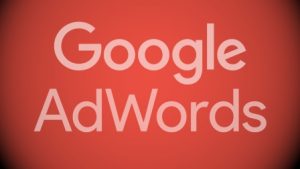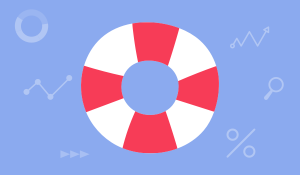
Here’s a question: what’s the ONE content marketing tactic that drives the majority of your revenue?
Is it blogging? Webinars? Teaching small classes? Or is your answer, “Hmm, I’m not quite sure, but does it really matter? After all, shouldn’t all my content efforts help?”
Well yes and no. Because without knowing the answer, you’re putting your campaign at risk.
Here’s why:
What’s the ONE Thing, anyway?
Gary Keller, founder of Keller Williams Realty, Inc., coined the “ONE Thing” concept. His thought: what’s the ONE Thing I could do, such that by doing it everything else would be easier or unnecessary?
For instance:
- You may not be a “saver,” but you’ve found that automatic deductions from your checking account helps you build a robust safety net.
- You’ve found a bedtime ritual helps you sleep a full 8-hours. You know you can fall asleep wherever you are, as long as you can maintain your ritual.
- If you want to function before 9 a.m., you need a grande almond-milk latte. (OK, maybe that’s just me!)
The thing is, we use this ONE Thing principle all the time–but we don’t think about it. It just works. But somehow, the concept gets lost when it comes to our content marketing, and bad things happen. Instead of focusing your efforts on the thing that works, your efforts get scattered.
That’s not to say that experimenting with other content strategy tactics is a bad thing. But those “other things” should be in addition to your ONE Thing, not instead of it.
On the flip side, when you do know your ONE Thing, everything else is easy.
For instance:
I once worked with a brilliant consultant. He was well-known in his field, consulted with top brands, and was popular on the lecture circuit.
However, you’d never know it by his site’s Google positions–he wasn’t positioning for any core key phrases.
Yes, my client tried to blog. But the problem was that he didn’t have time. He traveled too often, had too many responsibilities–and, most importantly, his heart wasn’t in it. (Sound familiar?)
What did I advise my client to do? No, I didn’t say, “hire a freelancer to blog for you,” or “blog less frequently.”
What I did say was, “stop blogging.” Why? Because there was a content marketing medium my client did enjoy– podcasting. He would faithfully record a podcast wherever he was. Every recording was spot-on for his target audience and provided tremendous value. Plus, he would invite well-known guests on his show, making his podcasts even more “sticky.”
Instead of blogging, we transcribed the podcasts and posted them on his site. Not only did his site visitors love the transcript option, Google loved his transcripts, too. After a few months, my client was positioning for long-tail and head keyphrases. He went from nowhere in Google to positioning in the top ten for some key terms. Plus, his podcasts drove leads and led to more opportunities. Most importantly, my client could easily maintain the publication schedule.
We found his ONE thing. And in this case, it wasn’t blogging.
Not sure what your ONE Thing is? Here are some things to try:
- Comb your analytics. Does a certain type of blog post (for instance, thought leadership posts) pull in more leads?
- Do all of your new leads say they found you the same way (for instance, your podcast or a guest post?)
- Does posting on LinkedIn Pulse or Medium drive new, profitable traffic?
- Was there a day (or month) that saw a huge spike in sales? Does it correlate to a certain something that happened (for instance, a webinar series)?
Finding your ONE Thing sounds so simple in concept–but pinpointing it may take some time. I’m still working on my ONE Thing as well, although I have narrowed it down to two!
Plus, you’ll want to revisit this question on a yearly basis. As you experiment with different tactics and measure your success, your ONE Thing may change. That’s OK. It means you’re trying new things and measuring the results.
Do you know your ONE Thing already?
Business & Finance Articles on Business 2 Community(58)
Report Post





